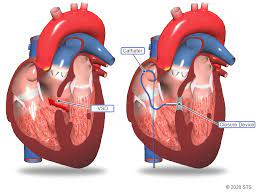VSD Closure
India
-
Our Price USD 5850
-
Hospital Price USD 6500
-
You Save : USD 650
Booking Amount: USD 585. Pay Remaining 90% at the hospital.
Book NowAdditional Credit
Among the important extras we offer as part of the Additional Credit are the following:
-
Site Tourism For The Patient & Attendant
-
Airport Pick & Drop Service
-
Ambulance service at airport
-
Priority appointments with The Doctor
-
Cancel Easily Anytime with Full Refund
-
Room Upgradation
-
Free Online Doctor Consultation Valued at USD 20
-
Free hotel Stay for 5 to 7 days Accordingly
-
Welcome Kit at Arrival
-
Interpreter
-
Medical Visa Assistance
What is Included?
- Doctor consultation charges
- Lab tests and diagnostic charges
- Room charges inside hospital during the procedure
- Surgeon Fee
- Cost of implant
- Nursing charges
- Hospital surgery suite charges
- Anesthesia charges
- Routine medicines and routine consumables (bandages, dressings etc.)
- Food and Beverages inside hospital stay for patient and one attendant.
What is not Included?
- Extra Radiology Investigations
- Healthcare Professionals Charges of other consultations.
- Other Requested Services such as Laundry etc.
- Additional Pharmaceutical Products and Medicines After Discharge from Hospital.
- Management of Conditions Unrelated to Procedures or Pre-Existing.
- The cost of any additional implants will be in addition to the package cost.
Package Description
VSD Closure:
A form of cardiac operation is transcatheter closure of a ventricular septal defect (VSD). It seals a gap between the heart's left and right ventricles. It does not cause a cut in the chest wall (incision). The heart contains four chambers: two upper (atria) and two lower (ventricles) (ventricles).
Disease Overview:
Ventricular septal defect (VSD)
A hole in the heart, known as a ventricular septal defect (VSD), is a common birth abnormality (congenital). The hole (defect) is in the septum, which divides the heart's lower chambers (ventricles) and permits blood to flow from the left to the right side.
Disease Signs and Symptoms:
Moderate to massive VSD in babies causes symptoms that resemble heart failure. These are some of them:
- Breathing difficulties, such as rapid breathing or struggle to breathe.
- Sweating or exhaustion when eating.
- Slow weight gain.
- Respiratory infections are common.
VSD can result in the following symptoms in older children and adults:
- When you exercise, you might easily become weary or out of breath.
- Infections induce a slight increase in the risk of heart inflammation.
- Very pale complexion or a bluish tinge to skin and lips (a condition known as cyanosis) may appear once Eisenmenger syndrome develops.
Disease Causes:
A congenital heart problem, or birth defect, is the most prevalent cause of a VSD. Some people's hearts are already pierced when they are born. They might be asymptomatic and take years to diagnose. Severe blunt chest trauma is an uncommon cause of a VSD.
VSD that's present at birth doesn't presently have any identified causes. However, it does occasionally arise simultaneously with other cardiac abnormalities, heart diseases or genetic problems. Taking some anti-seizure drugs (sodium valproate and phenytoin) or consuming alcohol while pregnant might further raise your child's chance of getting a VSD.
Disease Diagnosis:
A physician can identify a VSD based on a combination of symptoms, a physical exam, and imaging tests, especially when they're moderate or big in size. When the hole is too tiny to generate indications or symptoms, a mild VSD may go unnoticed.
One of the most popular ways for a clinician to detect a VSD is through a physical examination. This is because a VSD creates a sound called a heart murmur, which your doctor may detect with a stethoscope while listening to your heart. Even the sound of a murmur can be used to determine the magnitude of a defect.
The following imaging studies can also aid in the diagnosis of VSD:
Echocardiogram: This test uses a device on the skin of your chest to deliver ultra-high-frequency sound waves into your body. The sound waves produce an image of the heart's interior and exterior. An echocardiography is likely to reveal the VSD, depending on its size and precise location. This test is likewise painless and takes only a few minutes.
ECG: A VSD might create changes in your heart anatomy over time. When the structure changes, so does the electrical pattern. However, if the VSD isn't large enough or the heart hasn't begun to alter form, this test will typically be normal.
X-Ray: When a VSD is large enough, it will cause the structure of your heart to change. That change is visible on certain types of chest or heart X-rays.
CT scan: This test involves using a computer to convert X-ray pictures into a three-dimensional image of the interior of the heart. An injectable material that is highly visible on a CT scan, similar to a chest or heart X-ray, may be helpful.
Cardiac catheterization: A technique that employs a catheter device to see within the heart. The device is inserted into a major blood artery, generally around your upper thigh, and then passed up to your heart by a specialist. It can assist detect the size and location of any issues, such as a VSD, once it's within your heart. When a doctor detects blood vessel damage in the lungs, this test is most likely to be used.
Disease Treatment:
Treatment for VSD can include following measures:
Medication can be used to alleviate VSD symptoms before surgery or if the VSD is expected to close on its own. The drugs used to treat VSD are frequently the same as those used to treat heart failure.
Surgery: Patching a VSD surgically is the most dependable approach to close it. A cardiac (heart) surgeon will operate and patch or plug the hole to do this. It may be as easy as sewing the hole close, depending on the size and placement of the hole. In other circumstances, a patch consisting of synthetic material or a transplant of your own tissue may be used.
Transcatheter procedures employ a transcatheter (catheter-based) technique to reach the heart via a major artery, similar to cardiac catheterization. When the catheter device reaches the defect, it can insert an occluder, a specialised device that plugs the hole. Typically, these devices are built of a mesh structure with a synthetic material covering.
Your heart tissue will develop over and around the patch or occlude device in either of the scenarios above. Between the ventricles, the patch or gadget should eventually become a part of the heart wall.
If a newborn or kid is underweight or not developing at the usual rate, Doctor may suggest extra steps to ensure that they obtain adequate nourishment. A customised diet or even a feeding tube may be required.
Information related to Treatment
Package Details
Days in Hospital
10 Days
Days in Hotel
*
14 Days
Room Type
Private
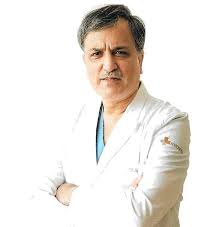
Treating Doctor
Dr. Anil Bhan
Cardiac Surgeon- Pediatric Cardiology, Pediatric Cardiac Surgeon
Medanta-The Medicity, Gurgaon Gurgaon, India
37 Years of Experience
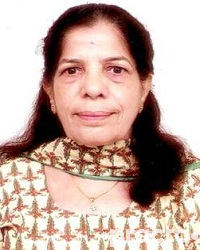
Treating Doctor
Dr. Shanti Talwar
Pediatric surgeon- Pacemaker Implantation, Coronary Angioplasty, Bypass Surgery, Intra - Arterial Thrombolysis Procedures, Mitral/Heart Valve Replacement, Congenital Disorders, Radial Approach Angiography, Cardiac pacing, Appencicitis Treatment, Balloon Mitral Valbuloplasty
Indraprastha Apollo Hospitals, New Delhi New Delhi, India
59 Years of Experience
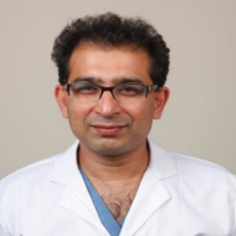
Treating Doctor
Dr. Viresh Mahajan
Paediatric Cardiology- Heart transplant, Angioplasty, GERD Surgery, Kidney Transplant, Pulmonary Arterial Hypertension, Kidney Stone Treatment, Bidirectional Glenn, Fontan procedure & Ebstein anomaly, Arterial switch operation, ASD VSD repair, Transposition of the Great Arteries (TGA) Surgery, Double Inlet Left Ventricle (DILV) Treatment, Double Outlet Right Ventricle (DORV) Surgery, Device implantation for heart failure treatment, Hypertrophic cardiomyopathy treatment, Surgery of ear for alleviation of deafness, Endoscopic Metal Stent Placement, Fitsula treatment, Coarctation, Brain Surgery and Brain Aneursym Surgery, Spasticity, Hip Arthroscopy, Pediatric Lung Transplant
Sarvodaya Hospital Faridabad, India
25 Years of Experience
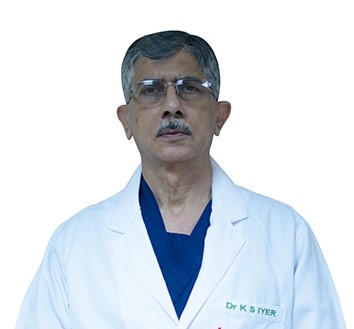
Treating Doctor
Dr. Krishna S. Iyer
Paediatric Cardiac Surgeon- Congenital heart surgery, paediatric Cardiologist, Neonatal heart surgery
Fortis Escorts Heart Institute New Delhi, India
30 Years of Experience
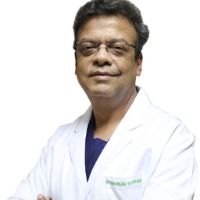
Treating Doctor
Dr. Gaurav Kumar
Paediatric Cardiothoracic Surgeon- Arterial switch operation, Double switch operation, Total anomalous pulmonary venous connection, Arch repair, ASD VSD repair, Tetralogy of Fallot repair, Truncus arteriosus repair, Rastelli operation & Cone repair and cardiac transplant
Narayana Super Speciality hospitals Gurgaon, India
21 Years of Experience
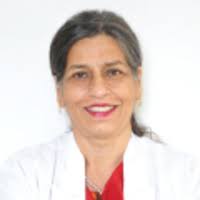
Treating Doctor
Dr. Meera Luthra
Pediatric surgeon- Laparoscopic and Miniamally Invasive Surgery, Newborn and Thoracoscopy
Medanta-The Medicity, Gurgaon Gurgaon, India
38 Years of Experience
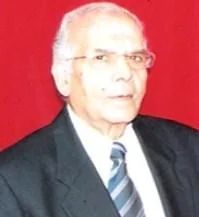
Treating Doctor
Dr. Brahmadeva Dwivedi
Pediatric surgeon- Bariatric Surgeon, Pediatric Cardiothoracic Surgeon, Vascular Surgeon, Pediatric Cardiothoracic Surgeon, Bariatric Surgeon, Pediatric Cardiothoracic Surgeon, Vascular Surgeon, Pediatric Cardiothoracic Surgeon, General Surgery, General Surgery, General Surgery, Pediatric Laparoscopic Surgery, Pediatric Kidney Diseases, Pediatric Cancer Surgery, Pediatric Liver Transplant, Pediatric Lung Transplant, Pediatric Gastric Internal Surgery
Indraprastha Apollo Hospitals, New Delhi New Delhi, India
63 Years of Experience
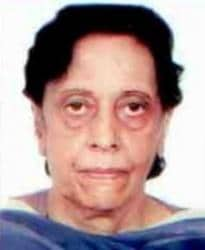
Treating Doctor
Dr. Krishna yadav
Pediatric surgeon- Pediatrics, General Surgery, General Surgery, General Surgery
Indraprastha Apollo Hospitals, New Delhi New Delhi, India
56 Years of Experience
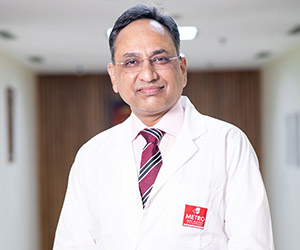
Treating Doctor
Dr Neeraj Jain
Cardiologist- Pacemaker Implantation, ASD closure, Implantation of ICD, Pacemaker Implantation, Angioplasty Stenting, Radiofrequency Ablation for Arrhythmias, PDA & ASD closures, ASD/ VSD device closure, Ambulatory Blood Pressure Monitoring, Viral Fever Treatment, Pulmonary Function Test (PFT), Allergy Treatment and Cardiac Catheterisation, Pacemaker Implantation, Viral Fever Treatment, Pacemaker Implantation, Complex coronary intervention including Rotablation, Ambulatory Blood Pressure Monitoring, Viral Fever Treatment, Pacemaker Implantation, Viral Fever Treatment
Metro Hospital (Heart Institute with Multispeciality) Faridabad, India
23 Years of Experience
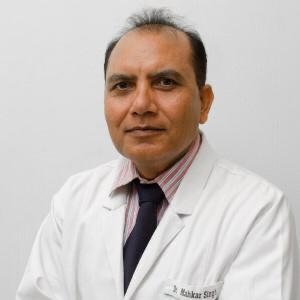
Treating Doctor
Dr. Mahkar Singh Khari
Cardiologist- Preventive cardiology and Cardiac Rehabilitation, Ultrasound, Peripheral Angiography, PDA, Holter Monitoring, Hypertriglyceridemia, Pulmonary Function Test (PFT), ECG analysis, Hypercholesterolemia, Hypertriglyceridemia, Device closure of ASD/VSD/PDA, Holter Monitoring
Yatharth Super Speciality Hospital Noida, India
27 Years of Experience

